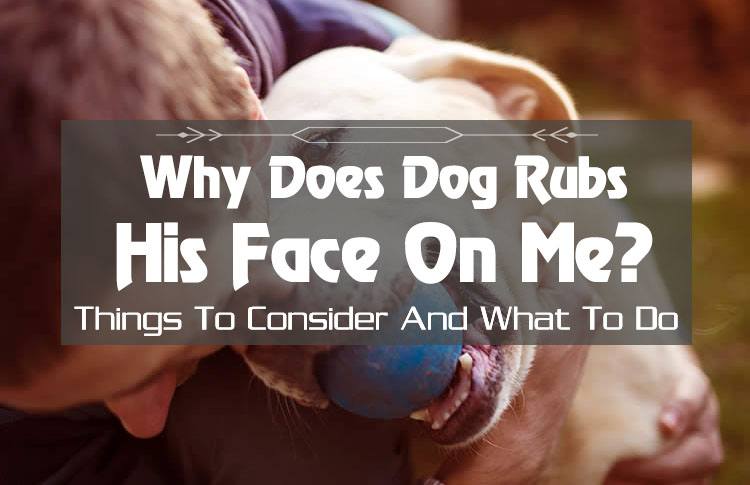Why do dogs have wet noses? It’s a question many dog owners have wondered about, especially after a cool, damp snout nudges their hand or face. While it might seem like just a quirky trait, a wet nose actually serves important purposes for your dog’s health and daily life. From enhancing their incredible sense of smell to helping them stay cool and even supporting their respiratory system, that moist nose is far more functional than you might think. In this article, we’ll break down why dogs have wet noses, what it means for their health, and when you should be concerned.
Key Takeaways
- A wet nose is essential for a dog’s health, aiding in cooling, moisture retention, and enhancing their sense of smell.
- Dogs lick their noses to maintain moisture and enhance scent detection, but excessive licking can signal health problems.
- Environmental factors and changes in nose texture can indicate health issues; monitor your dog’s nose for persistent changes.
The Role of Moisture in a Dog’s Nose
The moisture in a dog’s nose is more than just a quirky trait; it plays a critical role in their daily activities. A wet dog nose helps dogs navigate and explore their environment, contributing significantly to their good health. A cold wet nose and warm nose typically indicate that your dog is healthy and attentive to their surroundings.
The moisture in a dog’s nose humidifies incoming air, benefiting their respiratory system. This keeps their nasal passages well-lubricated and helps prevent dryness that might otherwise lead to discomfort or health issues.
A wet nose not only supports respiratory health but also helps disperse heat. The numerous blood vessels in a dog’s nose help to dissipate heat, contributing to their overall cooling mechanisms. Though dogs primarily cool off by panting, evaporating moisture from their noses offers additional cooling.
How Wet Noses Enhance Scent Detection
A dog’s nose is a marvel of natural engineering, especially when it comes to their sense of smell. A moist nose helps capture scent chemicals, significantly enhancing a dog’s sense of smell. Scent particles stick better to a moist nose, allowing dogs to gather more scent information than they would with a dry nose. Additionally, a pet’s nose plays a crucial role in this process.
Glands in the dog’s nasal cavity produce mucus, keeping their nostrils moist. The mucus traps foreign bodies and allergens, enhancing their scent detection. It’s like having a built-in air filter that amplifies smells.
Dogs often lick their noses to clear them, ensuring they detect even faint scents. Constant nose licking allows dogs to analyze odors more effectively, giving them a superior sense of smell. This is how dog noses work.
Cooling Mechanisms in Dogs
Dogs have unique cooling mechanisms, with their noses playing a significant role. Key points include:
- Moisture on a dog’s nose helps them cool down through evaporation, akin to human sweating, unlike humans.
- Evaporation from their nose and tongue helps regulate body temperature.
- This process is a crucial cooling mechanism for dogs.
Panting is their primary cooling method, but nose moisture evaporates offers additional benefits. This dual approach allows dogs to manage their body temperature effectively, even in warmer climates and hot weather, as a thin layer of moisture aids in cooling.
Dogs also lick their noses to aid in cooling since they cannot sweat like humans. A consistently dry nose, especially after vigorous exercise, might indicate dehydration. Ensure your dog has access to fresh water and monitor their nose for moisture changes.
Why Do Dogs Lick Their Noses?
One of the most common behaviors you’ll notice in dogs is nose licking. Dogs lick their noses for several reasons:
- To keep them moist, enhancing their sense of smell and cooling mechanisms.
- To spread mucus evenly, keeping it effective in capturing scent particles.
- To aid evaporation. Dog licking is a natural behavior that supports these functions.
However, frequent nose licking can also indicate other issues. It may also indicate anxiety or even a partial seizure. Excessive nose licking with other unusual behaviors warrants a vet consultation to rule out health problems.
Mucus Production in Dog Noses
Mucus production is a vital process in maintaining the moisture levels in a dog’s nose. Dog noses secrete mucus to:
- Keep nasal passages moist, which is crucial for their sense of smell and respiratory health
- Act as a barrier by trapping foreign particles
- Prevent foreign particles from entering the respiratory system
Moisture on a dog’s nose, produced by mucus glands and frequent licking, captures scent particles more effectively. A wet nose often indicates a healthy dog with a keen sense of smell.
Dogs may lick their noses to remove foreign objects or blockages that interfere with their ability to smell. It’s a natural way to maintain nose functionality, allowing them to explore their world through scent.
Environmental Factors Affecting Nose Moisture
Environmental factors that can significantly affect the moisture levels in a dog’s nose include:
- Dry air, especially during winter with heating systems, which can cause a dog’s nose to lose moisture.
- Exposure to harsh weather, including extreme heat or cold, which can also dry out a dog’s nose.
- Extended sun exposure, which can temporarily dry out a dog’s nose, so monitor their outdoor time.
A humidifier can help maintain nose moisture levels during dry conditions, ensuring your dog stays comfortable and a normal healthy pet parent and a healthy pet. A quick nap can also contribute to your dog’s overall comfort, promoting healthy dogs.
A dry nose can result from factors like aging or dehydration and does not always indicate a health issue. However, monitor your dog’s nose for persistent changes that might require veterinary attention.
When to Be Concerned About a Dry Dog Nose
A dry nose may not always be a concern, but sometimes it indicates potential health issues. A warm dry nose can occur in warm, dry, or windy environments and may not reflect their health status.
A consistently warm and dry nose can signal underlying health problems. Monitor your dog’s:
- behavior
- appetite
- bathroom habits
- energy levels
Changes in these areas, along with a dry nose and paw pads, can indicate signs of a health issue that is a perfectly normal sick symptom of illness and needs attention for overall health.
Severe symptoms or unusual behaviors with a dry nose warrant a veterinarian consultation for a thorough evaluation. Bleeding, unusual discharge, or sores on the nose warrant immediate veterinary attention.
Common Health Issues Related to Nose Moisture
Various health issues can affect the moisture levels in a dog’s nose. Frequent licking might indicate a respiratory issue or infection. Overproduction of mucus or thick, discolored nasal discharge may signify respiratory infections or foreign objects in the nasal passages.
A runny nose may also indicate potential health issues like an upper respiratory infection. Excessive nasal discharge could indicate more severe conditions, such as nasal tumors or tick infections.
Redness or cracking around the nose can be early indicators of autoimmune disease in dogs. A persistently dry nose with unusual behavior may indicate an underlying health issue that requires veterinary attention.
Changes in Nose Texture and Color
Changes in a dog’s nose texture and color can be alarming but are not always a cause for concern. A shift in pigmentation may signal a health issue but can also result from breed, environmental factors, or age. For instance, a seasonal change in nose color, often lightening during colder months, is generally harmless and called hypopigmentation.
‘Dudley nose’ is a genetic mutation leading to irreversible pigment loss, more common in certain breeds. Loss of nose pigment doesn’t typically affect a dog’s sense of smell, but it may increase their risk of sunburn.
Dryness or scaling in a dog’s nose could indicate conditions like nasal hyperkeratosis. Immune-related conditions like pemphigus and lupus can also affect the texture and pigmentation of a dog’s nose. Monitoring your dog’s nose for changes and consulting your veterinarian can help ensure their good health.
Summary
Understanding why dogs have wet noses offers a fascinating glimpse into how they experience the world. From boosting their powerful sense of smell to helping them stay cool and breathe comfortably, a moist nose plays a vital role in keeping your dog happy and healthy. By staying aware of changes in your dog’s nose and knowing when to consult your veterinarian, you can better support your furry friend’s overall well-being.
Curious to learn more about your dog’s unique traits and behaviors? Explore our collection of dog behavior and health guides to keep deepening your bond and understanding.
Frequently Asked Questions
Why is my dog’s nose wet?
A wet nose is actually a good sign; it helps your dog with scent detection and keeps them cool. So, no worries—your pup is likely healthy!
Should I be worried if my dog’s nose is dry?
You don’t need to worry right away; a dry nose can often just be due to things like dry air or too much sun. But if it stays dry or comes with other symptoms, definitely check in with your vet.
Why does my dog lick their nose?
Your dog licks their nose to keep it moist, improving their sense of smell and helping to cool down. It’s a natural behavior that keeps them in tune with their surroundings!
Can changes in nose color indicate a health problem?
Yes, changes in nose color can indicate a health problem, especially if there are other symptoms present. It’s always a good idea to check with a vet if you’re concerned.
What should I do if my dog has excessive nasal discharge?
If your dog has excessive nasal discharge, it’s best to consult your veterinarian to determine the underlying cause and get appropriate treatment. Don’t delay, as it could be a sign of a more serious health issue.




